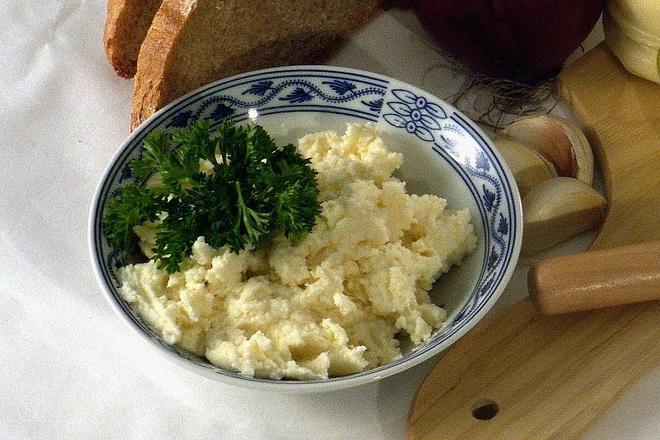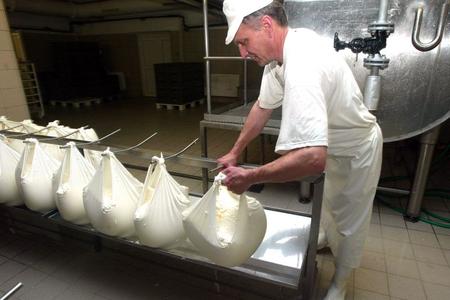Bryndza, a typical Slovak soft crumbly cheese, has been a key ingredient when preparing Slovakia's traditional dish, bryndzové halušky, for years. Nonetheless, not every type of bryndza cheese is made of 100-percent Slovak sheep milk anymore, the SITA newswire reported.
The production of Slovak bryndza has been disrupted by imports of milk from France, Italy and Hungary for some time now, the Slovak Agriculture and Food Chamber (SPPK) said after the meeting with farmers.
To find actual bryndza on the shelves, consumers must read the ingredients on its package carefully. Slovak bryndza must contain at least 50 percent of the Slovak sheep milk.
“Bryndza, which contains 100-percent Slovak sheep milk, is labelled with a golden sheep logo,” Slavomír Reľovský of the Sheep and Goats Breeders' Association (ZCHOK) said, as quoted by SITA.
Sheep milk production
Slovak breeders are ready to increase the production of sheep milk and the number of animals to improve the situation. However, they will need a stable business environment and equal conditions for expansion within the single European market, SPPK said.
“When someone imports milk from France for €0.85 and we can produce it for €0.95, there are only few solutions,” SPPK head Emil Macho added, as quoted by SITA.
Either subsidies within the EU will be banned, or the government will have to support farmers and milk producers better, he added.
“They want to convince the state that systematically implemented measures for breeding sheep in Slovakia are needed,” Macho went on to say.
Lack of young farmers
Although about 340,000 sheep are currently bred in Slovakia, the figure is decreasing each year, according to Anna Kováčiková, the head of farm in Liptovské Revúce (Žilina Region).
“We used to have 7,000 sheep on a farm, but only 2,500 today,” she said, as quoted by SITA. This is the result of not only the lack of money but also the lack of young people who want to work on farms, she added.
Bryndza cheese was added to the EU register of protected geographical indications (PGI) in 2008.




